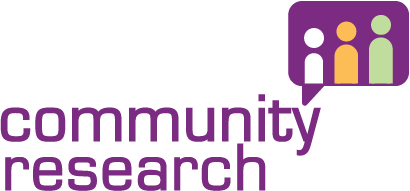The Flexible Panel or Community - A New Approach
Many of our clients are interested in setting up a panel or community of consumers - having a flexible research and engagement approach, ensures that they have a convenient, responsive vehicle for engaging with patients and public and hearing their voices directly at all levels of the organisation.
However, we are aware that, in any organisation, there are competing priorities for resources and that a key requirement of any panel is that it provides good value for money. The money spent on this kind of vehicle needs to be proportionate and the research needs to provide added value. We know that setting up a large-scale consumer panel can be prohibitively expensive but setting up a more targeted qualitative community often does not give the flexibility that clients need.
For this reason, we have developed a new approach – one that has recently been commissioned by two of our clients. The approach cuts the costs allocated to panel management and recruitment and ensures that more of our client’s budget can be devoted to research activities themselves. Our approach also ensures that clients have access both to particiapnts who have been involved in previous research for them and those who come fresh to the issues and therefore better represent the wider, uninformed public. This flexibility is important given that sometimes clients will wish to engage with informed consumers and sometimes it will be preferable to test responses with people who better represent the position of the uninformed public.
Our approach involves partnering with Panelbase to create a panel which is developed by pre-profiling members of their existing 300,000-strong online UK market research panel to allow us to undertake targeted ad hoc recruitment for all kinds of research and engagement activities. Panelbase’s panel has is one of the fastest growing in the country.
It works like this:
Panelbase sends a profiling survey request to their entire panel using a short survey (up to 10 questions) which asks questions relevant to the client organisation about the panellists’ experiences or behaviours. Holding this profiling data gives us the option of targeting recruitment for all activities based on that data. In addition, the remaining Panelbase 300,000 panel members can also be approached for client research exercises. This could potentially be of use either when the pre-profiling questions are unimportant; or when, for example, there’s a desire to find a particular niche sub-group of service users, demanding maximum reach. Quantitative surveys could, if required, be conducted with a nationally representative sample of UK consumers or more targeted audiences.
The profiled c.10,000 panel members will also be our first source to recruit to qualitative or deliberative research, whether conducted online or face to face. However, the panel could be topped up by other recruitment methods if there are niche requirements (with participants recruited by other methods and subsequently asked to join the Panelbase panel).
This approach results in three distinct levels of available participants for the client to access as shown in the picture above. The advantages are as follows:
It is flexible and can accommodate qualitative, deliberative and quantitative activities.
There is no pressure or need for the client to engage, if there is a quiet period this will not pose a problem.
There are plenty of available participants, for large scale work or multiple projects.
Set up and management costs are extremely low.
There is comprehensive geographic coverage across the UK.
There is no need to ‘top up’ or refresh panellists.
We are currently running such panels on behalf of two regulator clients and we are excited about engaging the public on some fascinating topics over the next few years. Let us know if you would like more information about this approach to setting up a panel – we would be happy to tell you more.

